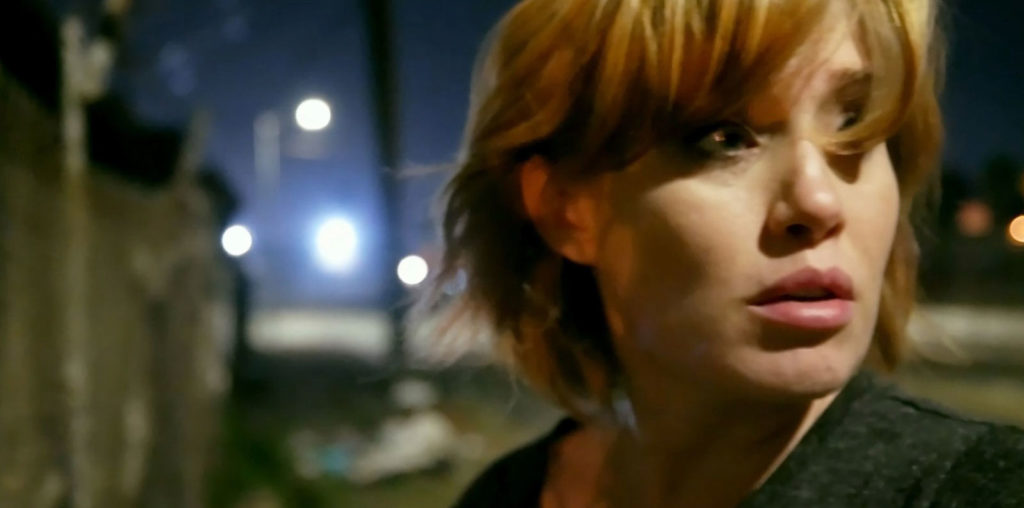
Now here’s something you don’t see every day: a remake worth seeing. In the past year or so we’ve endured updates of Assault on Precinct 13, The Longest Yard, The Stepford Wives, Dawn of the Dead, War of the Worlds, Herbie, House of Wax and even a reinterpretation of Guess Who’s Coming To Dinner featuring Ashton Kutcher and Bernie Mac. As this last example suggests, these can be amazingly bad ideas.
On the other hand, French director Jacques Audiard’s update of the 1978 James Toback classic Fingers is nothing short of inspired. It doesn’t simply rehash a well known story with a new crop of actors, as is so often the approach when it comes to Hollywood productions. It breathes the weird heart and soul of Toback’s film into a completely reworked version of the original.
For anyone not up on their 70s cinema: Toback’s picture starred Harvey Keitel as a violent New York city gangster who also happened to be a concert-level pianist. The story explored the duality of the character-his desire on one hand to please his mobster father and, on the other, his longing for fulfillment on an altogether different plane.
Audiard sets his story in the present day and moves the action to the mean streets of Paris. The tremendously talented young actor Romain (L’Auberge Espagnol) Duris takes over in the Keitel role only this time, instead of a drug-crazed wiseguy, he’s a ruthless, sleazy property shark following in the footsteps of his ruthless, sleazy father.
Everything you need to know about the business, at least the strata at which Duris’ character operates, is communicated in a series of riveting early scenes. In one, he marches down an alley carrying a sack that pulses and jerks with menacing life. It is filled, we soon learn, with sizable rats which he and his two partners will shortly let loose in an apartment building they plan to take over. Moments later, when squatters refuse to leave a seedy tenement they’ve occupied, the trio calls in a gang whose specialty is extreme home makeovers. They smash windows and sledgehammer walls until there is simply nothing left to live in.
It’s an audacious concept and one I’ve never encountered in a film before: real estate as organized crime. (It’s surprising the idea hasn’t popped up before, too, given the criminally high cost of housing these days). Audiard takes us into the nightclubs and down the backstreets of a Paris which is similarly unfamiliar. This may be the city of lights but he introduces the viewer to whole districts which have surrendered to darkness.
Niels Arestrup gives a transfixing performance as the young thug’s old man, an aging hipster of a hood who’s lost his touch and now browbeats his son into doing his dirty work for him. Each time they meet they kiss. Most times they discuss some bit of bloody business which requires the kid’s attention. It’s a fascinating study of a twisted father/son relationship.
A relationship from which Duris more and more desires to distance himself. The tipping point comes one afternoon when he unexpectedly runs into someone out of his past, the august impresario who once managed the career of Duris’ mother who is long dead but, in her day, was a successful concert pianist. The elderly gentleman recalls that Duris himself was once upon a time a promising artist and invites him to audition for him.
The chance encounter sets in motion the series of events which will decide the fellow’s destiny. He realizes that his life is merde and jumps with surprising naivety and passion at the chance to give it meaning and higher purpose. The problem? Well, there are a couple of them actually: He needs to brush up allegro with the help of a lovely Vietnamese music teacher who doesn’t speak a word of French. And then there’s the old Michael Corleone bugaboo: every time Duris gets out, they pull him back in. Anton Yakovlev costars as a Russian mobster who complicates the aspiring musician’s life just when his dream seems within reach.
They don’t make ’em, never mind remake ’em, a whole lot better than this. Nobody’s about to replace Toback’s picture or duplicate Keitel’s career-making performance and, wisely, the director doesn’t try. Instead he riffs on the original, throws in wonderful new bits and pays homage. From the performances of its first rate cast to the infectious score and Audiard’s deft direction, this is one of the most accomplished movies you’ll see anytime soon-old, new or, as is the case here, combining the best of both.
